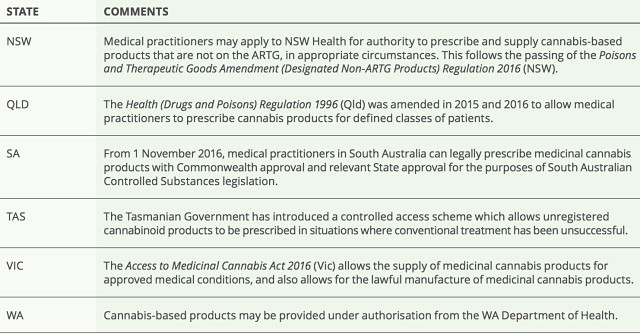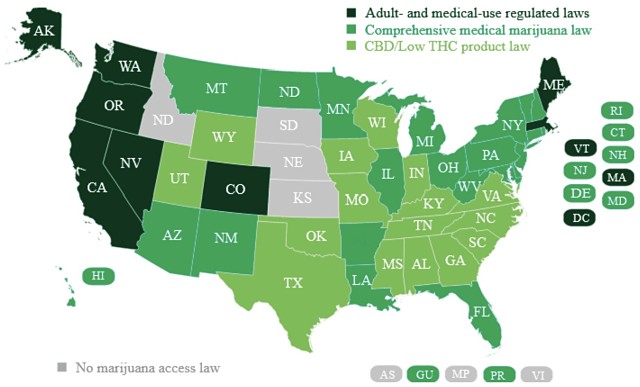Althea joins the ASX as Australia’s latest medicinal cannabis company

Althea Group is set to list on the ASX today, following an oversubscribed IPO, under ticker code AGH.
Australian company Althea Group (ASX: AGH) is set to commence trading today after raising $19.6 million at an issue price of $0.20 per share in a heavily oversubscribed IPO.
Current CEO and managing director Joshua Fegan founded Althea Health and Wellbeing in 2016, coinciding with the registration of the Narcotic Drugs Amendment Act 2016, in effect legalising the sale of medicinal cannabis patients under the scheme.
Althea Company was created a year later in 2017 with the view to acquiring the necessary licences and permits to import, cultivate, produce and supply medicinal cannabis for eligible patients across Australia.
Today the company holds a number of licences and permits for the importation, cultivation, production and supply of medicinal cannabis in Australia.
Althea’s IPO is the latest in a long line of cannabis-focused ASX hopefuls, although the conveyor belt has slowed with Althea being the first aspiring medicinal cannabis developer to list since January after Australian authorities have tightened both listing conditions, but also, growing and licensing permits that make up the bedrock of operations.
Althea received its cultivation license in March of this year and will apply for its growing license in the near future.
The company is being backed by an existing cannabis grower based in Canada – Aphria (TSX: APH) – which will supply both expertise as well as its proprietary products for the emergent industry in Australia.
According to its prospectus, Althea intends to deploy more than $10 million towards building a 3-tonne-per-year growing facility in Skye, Victoria.
The company says it will apply for a manufacturing license that will allow it to create its own versions of Aphria’s existing range of products based on its own proprietary development schedule ongoing in Canada.
The tie-up means Althea benefit from Aphria’s strong market presence and product knowledge, while Aphria will get a direct route into Australia, one of the world’s most commercially viable medicinal cannabis markets.
As an indicator of how tight the industry still is from a regulatory perspective, Australia’s Office of Drug Control (ODC) has so far issued 18 cultivation licenses, 10 research licenses and 13 manufacturing licenses to a handful of companies keen to take early stakes in the industry.

Current status of regulation relating to medicinal cannabis in Australian by state.
Each license must be renewed every 12 months although industry analysts expect the strong regulation to continue easing much like similar legalisation paths taken on by countries such as the US, Canada and Germany in recent years.
The epicentre of pot
Based in Toronto, Aphria is currently the world’s third-largest cannabis-market company, otherwise known as “pot stocks” and has secured a binding supply agreement with Althea in place, Althea has been selling products to patients since May this year.
Although Canadians face the prospect of flat-out legalisation, Australians must negotiate a variety of regulations even for medical use, although the tide is gradually changing.
The dawn of medicinal cannabis in Australia
Medical cannabis can now be legally prescribed in Australia but given the lack of an established framework and supply line, many patients are missing out on receiving medical cannabis products that could potentially improve the quality of their lives and help reduce the effects of debilitating diseases such as epilepsy, glaucoma, Crohn’s disease, Tourette’s, but also more mundane neurological ailments such as chronic anxiety and appetite loss.
Althea is hoping to change all that by providing access to medicinal cannabis and ongoing treatment management via an easy-to-use app, dubbed “Althea Concierge” that’s fully integrated not only with people’s smartphones, but also with the modern health care system that wants to integrate digital connectivity as much as possible for the benefits of patients.
The ‘Althea Concierge’ app allows patients to access medicinal cannabis treatments directly through their chosen healthcare professional which means the entire process is fully approved and legalised, as far as Australian authorities are concerned.
The shift towards decriminalisation (and now legalisation) of medicinal cannabis has been occurring sequentially (and very gradually) over the past decade, but only recently has the tide truly turned in favour of reintroducing cannabis-based products into the retail market – starting with the medicinal side as a first step.
From North America with pot
Canada and the US have been the front-runners in terms of pushing for the reintroduction of medicinal cannabis as an effective medicine that doctors are ready to support and prescribe.
The US is also moving towards reintroducing industrial hemp production – once considered one of the most lucrative industries in the US and used to create fabrics, paper, clothing and more besides.

US medical marijuana laws by state in 2018.
As can be seen, the tide is turning.
The idea is that hemp and medicinal cannabis needn’t be locked in government dungeons any longer and that they are far more useful in the light of day, contributing to much-needed tax revenue and overseen by professional production methods ensuring purity and product quality.
Althea’s game plan
By providing secure access to medicinal cannabis, the Althea wants to grow its business alongside the strong growth of medicinal cannabis products and the growing addressable market that is turning to cannabis as a medicine.
By providing access to high-quality medicinal cannabis, overseen by registered and fully-qualified doctors and mandated by softening government legislation, Althea expects to establish a leading commercial position in the emergent medicinal cannabis industry.
The company states its mission is to “improve the lives of patients suffering from debilitating conditions by facilitating access to high-quality medicinal cannabis.”
At the core of our mission is the provision of high-quality cannabis with the known composition to deliver a consistent and safe treatment experience for patients. To ensure that its product is of the highest grade, and therefore beyond reproach by both patients and eagle-eyed legislators, Althea is partnering with Aphria, a licensed Canadian grower that is readying for full-blown medicinal (and recreational) cannabis legalisation in Canada later this year.
According to Aphria, its “seed-to-sale certified commitment” ensures the company’s products will “go above and beyond industry quality standards” and thereby offer patients the finest medicinal cannabis products, in both Canada and Australia.
Through its 25% stake in Althea, Aphria is expected to guide the ASX debutant to a strong position in Australia by providing high-grade peak quality products in countries that are forecast to provide the lion’s share of tomorrow’s demand.
In its prospectus, published in preparation for its public offering, Althea says its medicinal cannabis product range allows doctors to tailor treatment to suit individual patient needs.
“Our cannabis oil range offers different THC:CBD ratios and our dried cannabis product is available where administration via inhalation is needed,” the company said.
To help its Australian market traction, Althea has said it plans to build a local manufacturing facility in Victoria to help ensure sustainable and affordable access to high-quality medicinal cannabis for Australian patients.
Acting as a large C$2.4 billion-dollar spearhead and its strategic partner, Aphria will own 25% of Althea once the company goes public and is expected to take up at least $3.4 million as part of the IPO.
Peer comparison
As its benchmark for a successful listing, Althea is hoping to emulate previous cannabis-market success stories such as Cann Group (ASX: CAN) and Auscann (ASX: AC8) – both companies also have strong Canadian backing and have seen strong appreciation since listing.
Cann Group is currently valued at A$288 million and Auscann at A$176 million – valuations that have been achieved on the back of opportunistic early-market entry, via obtaining operational licenses and the necessary manufacturing permits required by regulators.
Cann Group is up 130% since the start of the year while Auscann has swelled by 97%.
As the newest debutant, Althea hopes to grow a range of high-margin strains including both tetrahydrocannabinol (THC) and cannabidiol (CBD), to produce a broad range of high-grade pure cannabinoids as active pharmaceutical ingredients (API).
What is medicinal cannabis?
Medicinal cannabis is the use of the naturally occurring cannabis plant for medicinal purposes. The varieties of plants and their associated uses are vast, but the two predominant caveats that dictate how a cannabis plant is used are THC and CBD.
- THC is what causes the ‘high’ feeling, but it has also been found to reduce nausea, vomiting, pain, muscle spasms and improve sleep and appetite,
- CBD has been found to reduce the ‘high’ caused by THC, and may also be effective for seizures, pain, and may reduce anxiety.
Medicinal cannabis and illegal cannabis come from the same type of plants – but are very different.
Illegal cannabis is grown from unknown sources and may contain pesticides, moulds, and bacteria which are harmful.
The manufacture of medicinal cannabis is highly regulated and must conform to strict Good Manufacturing Practices – this means products are free from harmful ingredients, that doctors know what is in it, and that the effect it has for a patient will be the same from bottle to bottle.
